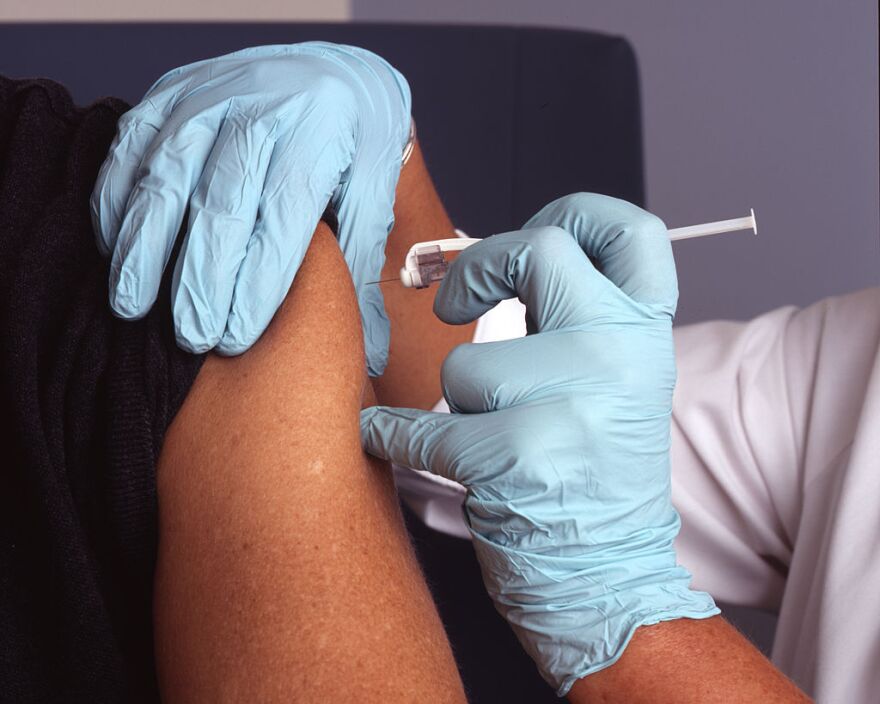The hepatitis A outbreak has affected at least a dozen restaurants in three southeast Michigan counties this year. That’s why Oakland County is hosting two vaccination clinics for restaurant workers this week, no appointment necessary.
Restaurant workers are a priority target for the limited supply of the hep A vaccine because they handle other people’s food. Those who catch the virus are most contagious before they show symptoms of hep A.
“They can contaminate the food unaware, and then sometimes even in the early stages of illness, people report to work regardless,” said William Schaffner, medical director for the National Foundation for Infectious Diseases.
Nearly 600 people have contracted hepatitis A in Michigan in the last year and a half. The rate may actually be higher because many people who catch it do not exhibit symptoms at all, Schaffner said. The rate of hospitalization for this outbreak in Michigan is high, state officials say. Twenty people have died.
State law requires food workers to report a hepatitis A diagnosis or symptoms to their employer. Food establishments are then required to report that information to local health departments.
But there is nothing in state law that requires health departments or restaurants to inform the public of a confirmed hepatitis A case.
When and how that public notice is issued is determined by local health departments. An especially important factor in the decision to go public is whether there’s an ability to reach potentially exposed customers. If all those customers can be contacted, the health department may choose not to issue a public notice.
The supply of the hepatitis A vaccine is constrained because of the outbreaks in Michigan, California, Utah and Kentucky, according to the CDC.
Michigan has a limited supply of the vaccine, according to the state, which is why health departments are prioritizing outreach to individuals who are in high-risk populations. That includes substance users, people who are homeless, food service workers, healthcare workers, and individuals who may be in close contact with those populations.
At this time, officials aren’t turning away anyone who wants the vaccine. Some health insurance plans cover the cost of the vaccine. Otherwise it costs $36 a dose in Oakland County’s clinic.
The vaccine comes in two doses, but studies show even one dose can protect a person against the infection for years.
“Getting the first dose in is very important in curtailing the outbreak, and then you can deep a breath and say 'Okay, now that we’ve stopped the outbreak, all of you who are vaccinated come back again in six months and we’ll finish the job,” Schaffner said.
The rate of vaccination isn’t available in Michigan or any other state, according to Schaffner.
The hep A vaccine became available in the mid-1990s. It’s on the CDC schedule for routine immunizations for children, but not all kids get it.
Michigan’s Department of Health and Human Services says only 58 percent of 3-year olds have received both doses. Eighty-two percent have received at least one dose.








